School for International Training (SIT) is shocked and saddened to hear news of the earthquake in Morocco, where we have deep community partners and many staff, faculty, and, currently, three student groups on the ground. We are relieved to be able to report that all SIT personnel and students are safe. At the same time, we mourn the loss of life and tragedy that so many are experiencing at this moment.
Since Friday, SIT teams in Morocco and the United States have been busy supporting each other, our students, and our partners and communities. Our faculty and staff in Rabat and Casablanca are grateful for the gracious expressions of support and kindness they have received from colleagues across our institution and beyond. Our faculty have also been reaching out to our program partners, including NGOs and academic colleagues from the impacted areas, to ask what we can do to support them at this incredibly difficult time. Our students have embraced the bottom-up feeling of popular solidarity across the country.
The Moroccan state has long experience managing crises, including previous earthquakes in Morocco. Moroccan emergency intervention forces have taken part in several natural catastrophes relief missions in the region including the recent earthquake in Turkey. A crisis management cell presided by King Mohammed VI has issued guidelines outlining immediate and mid-term measures for the reconstruction of the devastated villages. A bank account has been set to collect donations, and Moroccan residents abroad are mobilizing to help with the reconstruction efforts. As a sign of international solidarity and hope for rapid remediation, the International Monetary Fund and World Bank will continue with their planned annual meeting in Marrakech October 9-15, 2023, and which is expected to bring 14,000 high-level participants.
Many of the roads leading to mountainous villages that were closed by rubble have been re-opened, but a few areas near the epicenter of the earthquake in the High Atlas Mountains remain difficult to access. Military forces are on site to provide shelter, water, food, and health care for those in the mountains and an air-bridge was established to provide relief to the survivors in areas yet difficult to access. The challenge is for the reconstruction to be completed before winter snowfalls.
SIT is working closely with our student groups, who are confronting firsthand the importance of local and international solidarity as well as the impact of climate change, transnational support networks for disenfranchised communities, and relief and crisis management from a Global South perspective. We acknowledge that the context of this reflection is difficult, and emotional health support resources are being put in place for all who need them.
Our thoughts, energy, and support are with the people of Morocco.
Dr. Sophia Howlett
President, School for International Training
Brattleboro, Vermont
Dr. Said Graiouid
Provost, School for International Training
Rabat, Morocco
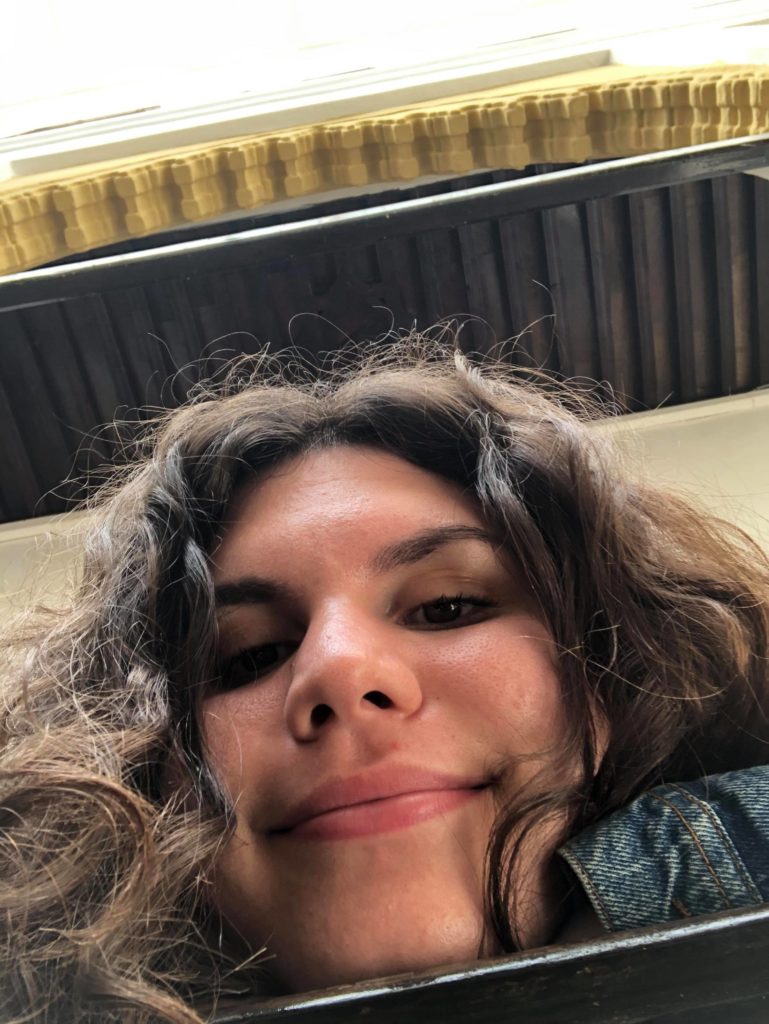
By Nejra Kravic
Nejra Kravic is a 2022 Alice Rowan Swanson Fellow. Her fellowship project focused on media literacy in Morocco. Kravic is an alumna of the SIT 2020 program Morocco: Field Studies in Journalism and New Media.
I often found myself looking back at my time abroad through SIT, and while my experience was cut short due to the COVID-19 pandemic, it made me cherish the moments of pure exploration and learning that happened during that limited time, and that took place both inside of the classroom but also at coffee shops, restaurants, my host family’s home, and in the great company of an array of wonderful people, including local journalists, activists, and Academic Director Daniel Bernard, who was a wonderful support system and a role model for all of us. I found myself seeking professional experiences that mimicked that same environment, challenging yet supportive.
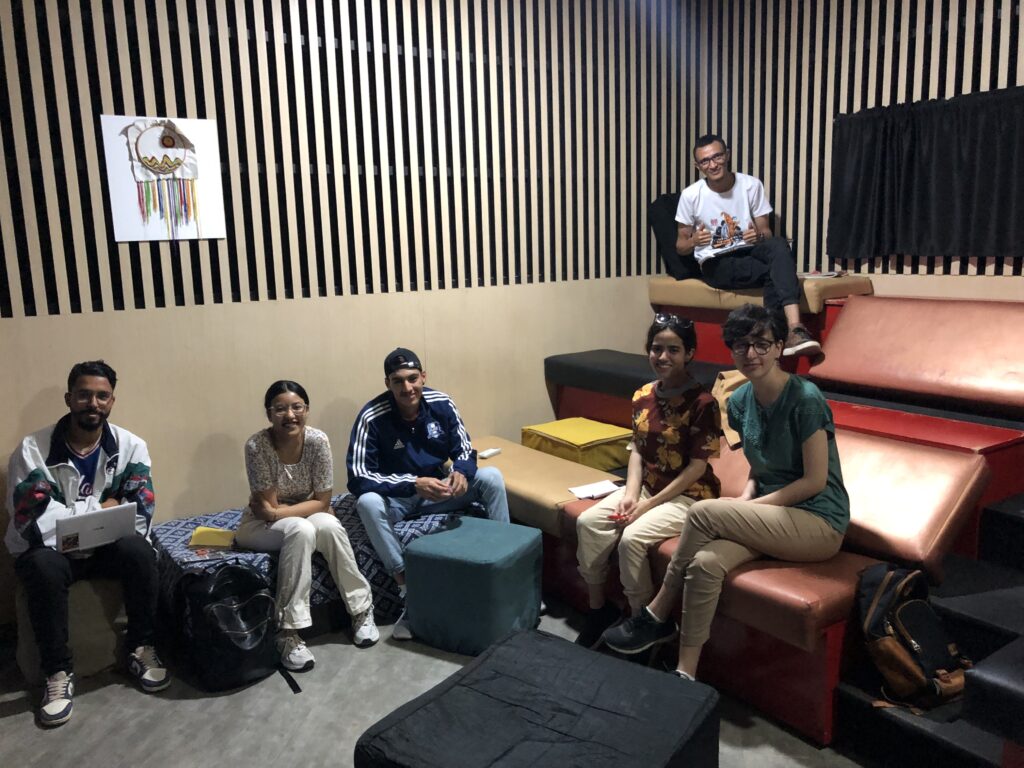
Before coming to Morocco through the SIT program, I had a vague idea of what I saw myself doing for the rest of my life. My answers were as broad as saying that I wanted to do something in the media, but as a first-generation student and professional, I knew little of what that actually meant. I always knew I wanted to improve the lives of others. Learning about journalism and new media through SIT gave me the skills to do that, while the Alice Rowan Swanson Fellowship further solidified my decision and reignited a passion for helping others.
Reconnecting with the staff and participants of Connect Institute, my partner organization, felt incredibly rewarding. Marya Joudani, the program coordinator at Connect, noted during one of our first meetings that things have significantly changed since we visited their office in Agadir in early 2020. She found the work more challenging now as interest in their various informal educational programs has significantly dropped. Suspecting that many young Moroccans were now exclusively turning to their phones and computers for both socializing and getting information, my series of media literacy workshops seemed like a great fit at a perfect time.
I found myself seeking professional experiences that mimicked that same environment, challenging yet supportive.
As I wanted to keep things educational but still interactive and experiential, Marya and I worked on a curriculum comprised of sections that contained information and practical exercises. My first workshop covered the basics of anything and everything media, going over the modern media landscape and all its forms and iterations, including distinguishing between terms such as communication and communications.
I also covered issues of representation and confirmation bias and had the participants engage in a discussion on the meaning of truth. The last two workshops expanded on some of the ideas we previously covered, but were framed more around writing and self-expression, so that the participants could actually engage in the production of their own media, as opposed to just seeing themselves as consumers.
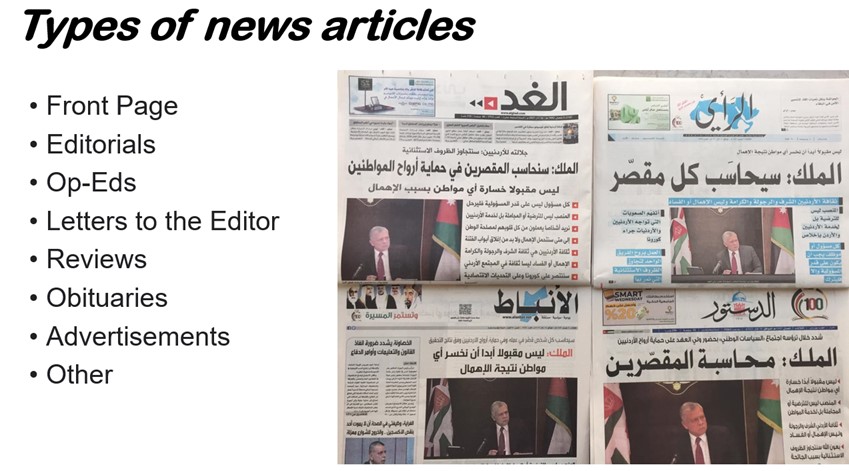
I think our most interesting discussion followed the screening of the first 15 minutes of Control Room, a 2004 documentary that examines Al Jazeera’s coverage of the Iraq invasion. It was fascinating to hear how young Moroccans felt about western media and its representation of communities across North Africa and the Middle East. We also spent some time analyzing various headlines and articles, looking for examples of media bias.
I looked forward to staying engaged with the participants through email in the following weeks afdter I assigned a short writing prompt. I was particularly excited when two of the participants asked for additional resources and reading recommendations, and I am currently working on compiling a list of media that everyone in the group can review as they wish.
This was an unbelievable, one-of-a-kind experience …
Overall, this was an unbelievable, one-of-a-kind experience, and I think one made possible by SIT’s mission statement and a relentless commitment to social justice and global development.
Thank you again for this wonderful opportunity and a huge thank you to the Swanson family for commemorating the extraordinary life of their daughter through this fellowship. May her strong sense for justice and kindness live on.
The Alice Rowan Swanson Fellowship was established in 2009 by the family of SIT Study Abroad Nicaragua ’06 alumna Alice Rowan Swanson as a living tribute to Alice’s life, her passion for bridging cultures and helping others, and the role that SIT Study Abroad played in her life.
Journalism project aims to empower youth
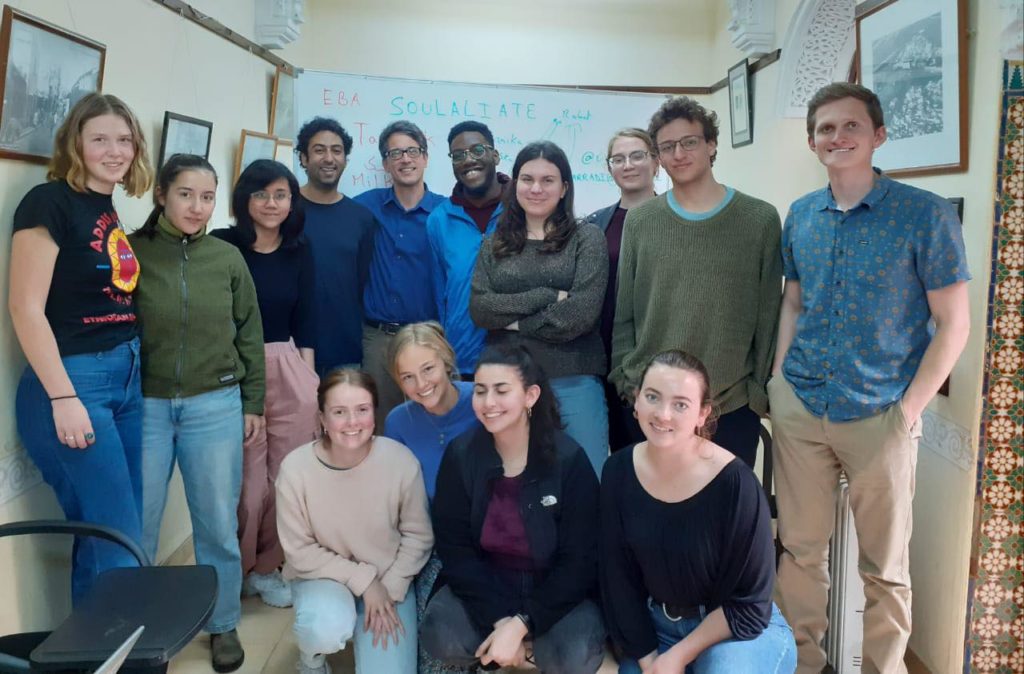
BRATTLEBORO, Vermont—SIT Morocco and Scripps College alumna Nejra Kravic has been named the newest Alice Rowan Swanson Fellow, School for International Training announced today. Nejra participated in the spring 2020 program Morocco: Field Studies in Journalism and New Media, but her time in the country was cut short due to the outbreak of Covid-19. She graduated from Scripps College in 2021 with a major in media studies and a minor in Middle East and North Africa studies.
The Alice Rowan Swanson Fellowship was established in 2009 by the family of SIT Study Abroad alumna Alice Rowan Swanson as a living tribute to her desire to bridge cultures and help others, and the role that SIT Study Abroad played in her life. An alumna of SIT Nicaragua and a 2007 graduate of Amherst College, Alice was killed while riding her bicycle to work in 2008.
Media can be used to expose human rights violations, advocate for justice, raise awareness about critical issues, and empower marginalized communities to take action.
Nejra Kravic
“I am incredibly honored to have been selected for the Alice Rowan Swanson Fellowship,” said Nejra. “Beyond the immense privilege of being able to go back to Morocco after my experience abroad was cut short in 2020, it is an honor to continue Alice’s legacy of helping others and advancing human rights. I look forward to reconnecting with Moroccan culture in the coming months.”
For her fellowship project, Nejra plans to return to Morocco to partner with a nonprofit organization, Connect Institute, to conduct a series of media literacy workshops for young people. The goal of the workshops is to empower young Moroccans to think critically about the media, recognize its role in a democratic society, and see it as a tool for positive change and activism, she said.
Nejra said each workshop will have a different theme, such as misinformation, privacy, or social media activism, and would be “experiential and interactive, in true SIT fashion.”
Although the SIT journalism program in Morocco is no longer active, former Academic Director Daniel Bernard said Nejra’s project corresponds with one focus area of the SIT program: the evolution of the media sector in Morocco amid challenges such as competition for revenue in the digital era and government restrictions.
“Her proposal to partner with the Connect Institute is well-founded in that the institute was a firm partner in the study abroad program and has demonstrated its interest in working with international students to promote global values of pluralism,” he said.
Alice Rowan Swanson fellowships are awarded twice annually to SIT Study Abroad alumni seeking to pursue locally led human rights projects in the countries where they studied abroad.
“Even though largely forgotten and underrated in discussions about social justice, media rights are human rights,” Nejra wrote in her application. “In any of its forms, the media can be used to expose human rights violations, advocate for justice, raise awareness about critical issues, and empower marginalized communities to take action.”
Born and raised in Sarajevo, Nejra currently lives in Bosnia and Herzegovina and works as a freelance journalist. In addition to her study abroad experience, which included an internship at Morocco World News, in college she was editor of the Claremont Journal of International Relations. She has held numerous competitive internships and was a Peace and Security Fellow at ReThink Media in Washington D.C., focusing on diplomacy, security, and ending wars through strategic communications.
She won the prestigious Elie Wiesel Prize in Ethics in 2021 for her essay on the modern challenges of Bosnian Muslimness. She is currently a fellow at the Witness Institute, a leadership program dedicated to continuing the work of Elie Wiesel. She is also a Humanity in Action Mapping Inequities 2022 Fellow and a UCLA Law 2022 Fellow. Her goal is to attend law school to focus on media law and press freedom.
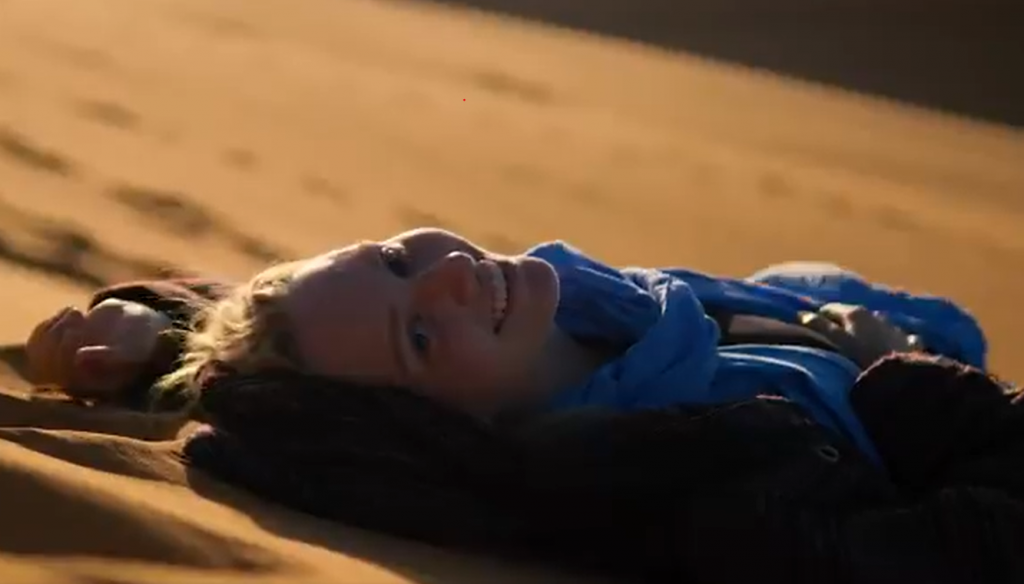
What’s better than a semester or summer abroad? Capturing all your overseas adventures on film – and then sharing them with the world.
For the past few years, SIT Study Abroad has asked students to submit the best of what they shoot from their travels to one or more of the seven continents where it hosts its groundbreaking programs. This past year yielded some of our finest videos yet, with the winners’ circle dominated by Australia and Morocco – and even some footage that might more accurately be called short film.
Below, we present the best of 2019, selected from dozens of entries. We had one simple requirement: All submissions had to be 60 seconds or less.
First Place: Stephen Higgins of Saint Michael’s College, who discovered the multifaceted diversity of Morocco during his travels on SIT’s Morocco: Field Studies in Journalism and New Media program. In this colorful and genuinely moving film, he shows us the essence of a nation. Watch the full video here.
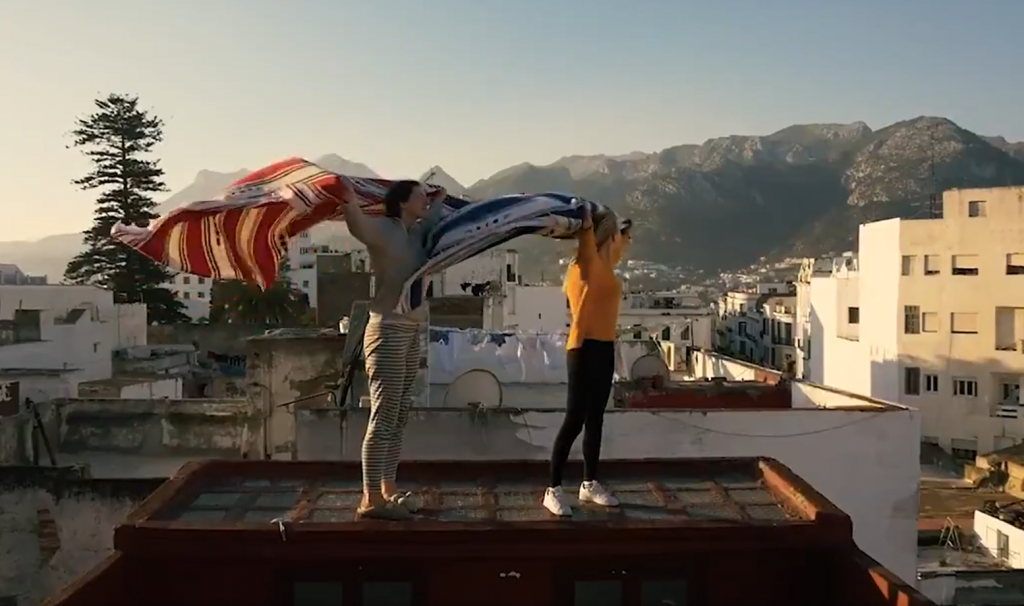
While the winners of SIT’s 2019 video contest frequently showcase the highlights of their study abroad experiences, they more importantly convey the authenticity of their environment, and a deeper understanding of the cultures in which they have immersed themselves.
And sometimes, that happens underwater.
Such was the case with our second-place winner, Jillian Lessing of Middlebury College, who managed to find time to shoot above – and below – the ocean while also conducting her Independent Study Project at Australia’s Lizard Island Research Station. Her submission, created during SIT’s Australia: Rainforest, Reef, and Cultural Ecology program offers an extraordinary glimpse of what it’s like to study coral planulae on the Great Barrier Reef. Watch Jillian’s video here.
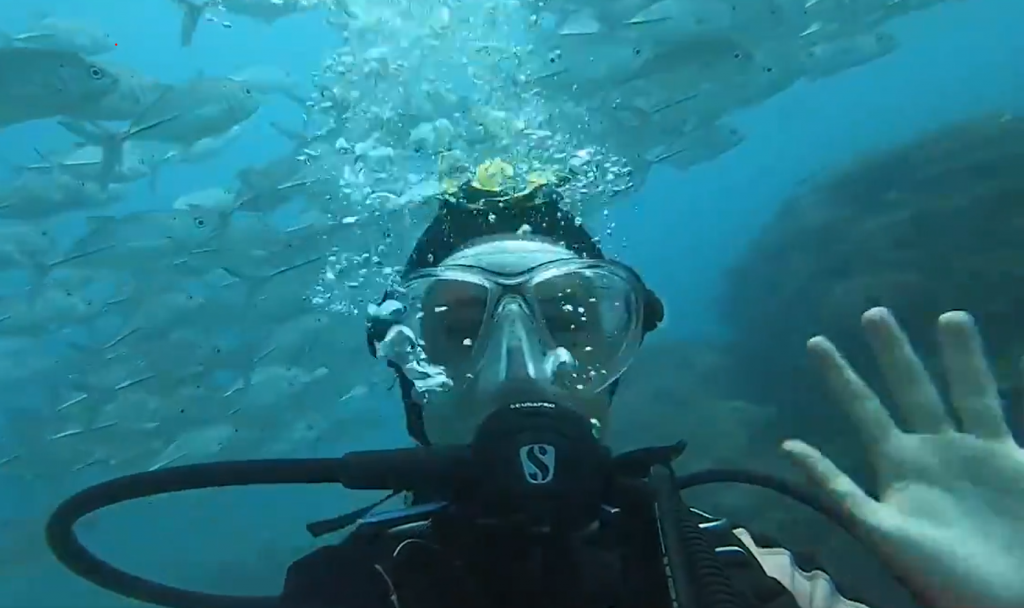
For third place, SIT is excited to announce two videos tied in a dead heat. Both are whimsical and artistic in their own way.
Our first third place winner, Naomi Miyamoto of Occidental College, created a very personal portrait of her homestay mother in Rabat, Morocco, as part of SIT’s Morocco: Field Studies in Journalism and New Media program. Listen to her deeply touching story of her host mother, her homestay family’s values and traditions, and how she learned to cook traditional Moroccan dishes. To see Naomi’s video portrait, click here.
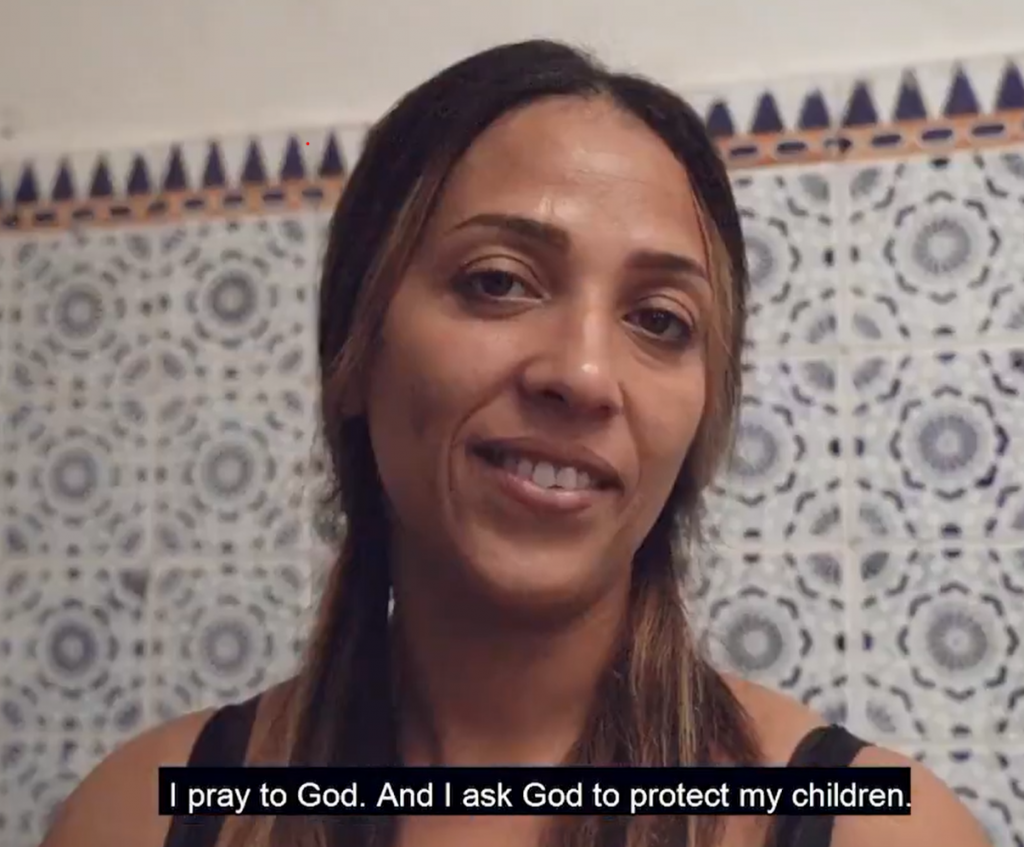
Finally, our other third place winner of the SIT Video Contest is Catalina Saldana of DePauw University, who shares her exciting experiences from the Australia: Sustainability and Environmental Action program.
Follow Catalina on her journey across Australia, from Mullumbimby to Sydney to Tasmania in this video.

SIT received a wide variety of entries from around the world this year, covering students’ time abroad throughout 2019.
Entries were submitted from November 22 to January 1, with the first place winner receiving a $250 gift card; the second place winner a $150 gift card; and our third place winners splitting the $100 prize with a $50 gift card each.
For more on SIT’s video contests, check us out on Twitter @SITStudyAbroad under #SITVideoContest.
Ousmane earned his PhD in 2002 at Cheikh Anta Diop University in Dakar where he has been teaching literature and translation. In addition to teaching courses at UCAD and teaching French for SIT, he has initiated important community development programs in and around Senegal, particularly related to sustainable development and building eco-communities. His teaching has been hailed by students as hands on and engaging.
Sidy has been teaching Wolof to American students for over twenty years. He received training from the Peace Corps on competency-based and community-based teaching and was an assistant coordinator for many years, training teachers to teach Wolof. He also worked for USAID, the Embassy of United Arab Emirates, Amnesty International, and many other NGOs as a Wolof instructor. He has the well-earned reputation of being one of the best Wolof teachers in town.
Each year, the Experiment in International Living Digital Media Fellowship program chooses two outstanding journalism students or recent graduates to travel with Experiment programs around the world and capture participants’ experiences. This year’s fellows are Erinn Halasinski, who traveled with the France: Cultural Discovery program, and Jeanette Lam, who covered South Africa: Leadership and Social Change program. Both are SIT Study Abroad alumnae. Erinn went on Nicaragua: Youth Culture, Literacy, and Media and Jeanette took part in Morocco: Field Studies in Journalism and New Media.
Erinn Halasinski
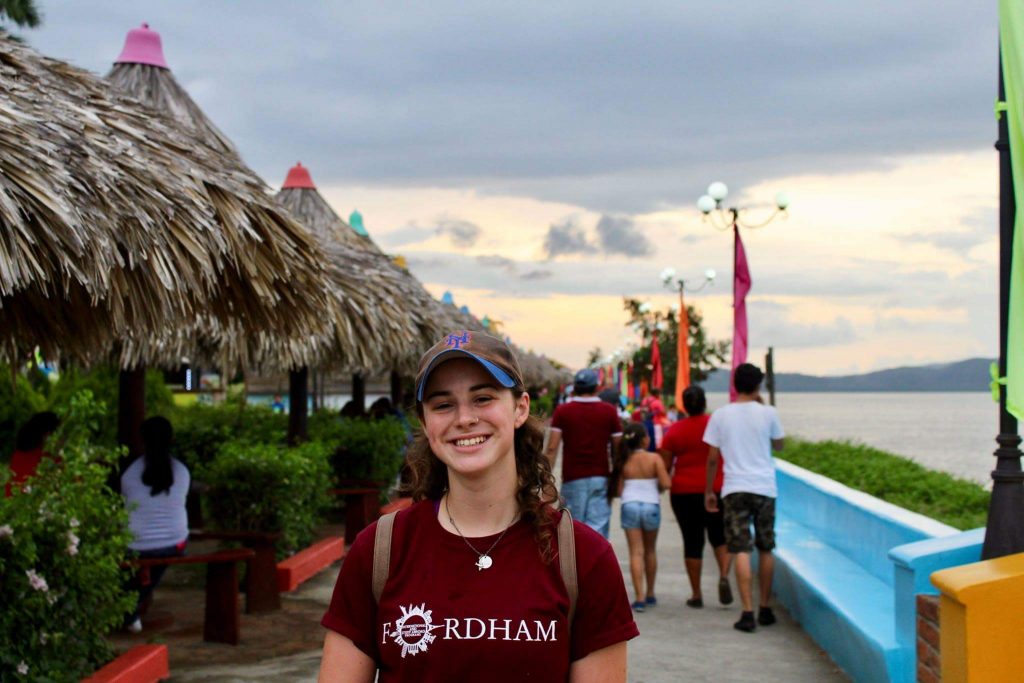
I’m super excited to experience a new country for me, with a camera, in the same way that the students are experiencing it for the first time.
Erinn’s interest in media began in high school when she began making videos with her friends for fun and for her track team. She continued learning about media and expanding her skills at Fordham University, where she graduated in May with a BA in Digital Technology and Emerging Media as well as New Media and Digital Design.
Erinn originally hadn’t planned to study abroad for a full semester because she didn’t think it would fit it into her coursework. However, she changed her mind after speaking with an SIT Study Abroad representative at a study abroad fair about the opportunities for immersion offered by a semester-long program.
She was drawn to SIT’s Nicaragua and Indonesia programs, but ultimately selected Nicaragua because of its focus on media and Spanish language immersion.
“I was able to study abroad in such a perfect program where I wanted to go and practice my Spanish,” she said. “It just fit so well.”
During her time in Nicaragua, Erinn created videos in English and Spanish, which she said helped her not only become more comfortable with her film skills, but also in working in a foreign culture with a camera. She also met Eli Laban, an alumnus of the program who had returned to Nicaragua as an Alice Rowan Swanson Fellow. Eli was later selected as a 2018 Digital Media Fellow and traveled to Japan with The Experiment. Seeing Eli’s work as a fellow on social media and learning about his experience is part of what prompted Erinn to apply for the fellowship.
“When the position came up on my alumni email, I had something to connect it to and could visibly see the work that he had done and that I could also do similar work,” she said.
Erinn has never traveled to France before and said she’s eager to discover the country alongside program participants.
“I’m super excited to experience a new country for me, with a camera, in the same way that the students are experiencing it for the first time,” she said.
In addition to exploring France, Erinn is particularly looking forward to her homestay. “My [host] parents are bakers. I can’t not be excited about that,” she said.
Following her fellowship, Erinn is joining the Jesuit Volunteer Corps and will spend two years in Belize volunteering with a nonprofit organization that works with children with disabilities. She’ll also continue building her media skills by helping the organization with its social media presence.
In the future, she hopes to experience and document different countries and cultures, especially places that aren’t frequented by tourists.
Jeanette Lam

[SIT] was a very transformative part of my college career because that was the first time I was surrounded by peers who were equally as passionate about art and social dialogue …
Jeanette recently graduated from the University of Richmond where she majored in Leadership Studies with a double minor in journalism and film studies. Although she had always enjoyed making videos with her friends and family, Jeanette says she got into professional film and media work by accident. The summer after her freshman year of college, Jeanette created a short, personal documentary about traveling to Taiwan with her grandfather.
“I didn’t even know it was a doc[umentary] at the time,” she said.
Jeanette submitted the video to a film festival and was accepted. After that, she was hooked. She took out a loan to buy her first professional video kit and paid it off over the summer by making videos. That fall, Jeanette embarked on her study abroad program in Morocco with SIT, which she chose because of its focus on media.
“[SIT] was a very transformative part of my college career because that was the first time I was surrounded by peers who were equally as passionate about art and social dialogue and these types of things,” she said.
During the semester, Jeanette completed weekly video assignments and created a short documentary for her independent study project, all of which she believes helped her grow as a filmmaker.
“I feel like that just really pushed me out of my comfort zone,” she said.
During her time in Morocco, Jeanette also learned to navigate living and working in another culture and connecting with people from different backgrounds, which she believes will help her support The Experiment participants.
“I know what it’s like to be in their shoes and how sometimes it can be frightening or uncomfortable, but ultimately really rewarding and eye-opening,” she said
She’s looking forward to documenting the arc of the students’ experiences over the course of their trip and how they grow throughout the program. In addition to working with the students, Jeanette is most excited about going on safari in Kruger National Park.
“That’s always been a dream of mine,” she said.
After her fellowship, Jeanette will move to Albany, New York, to work with Youth FX, which provides film and media production education to youth in underserved communities. Jeanette will be co-directing a filmmaking class in a juvenile detention center, which is similar to work she did in college. She also hopes to return to documentary filmmaking and work on both feature films and shorter video journalism projects.
“I know my heart is with documentary work and people-centric work,” Jeanette said.
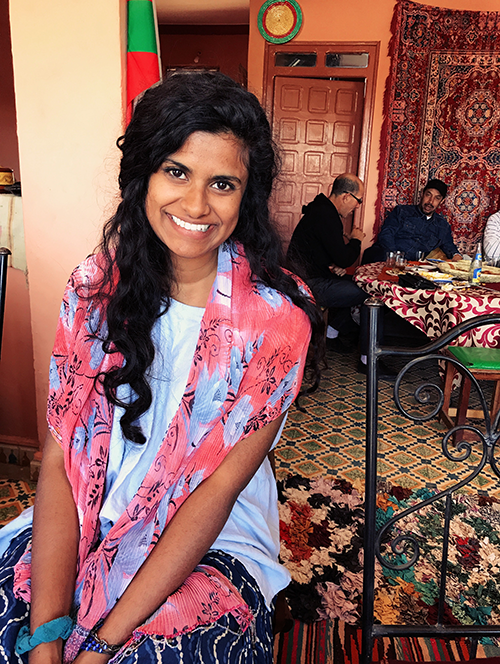
Photo courtesy of Melinda Davis.
In May 2018, toward the end of her semester in Rabat, Morocco, Melinda Davis had a memorable encounter.
For some weeks, Melinda and another SIT Study Abroad classmate had been teaching English to a group of teenagers, all of them migrants to Morocco from various sub-Saharan African countries.
The lessons were simple and practical, emphasizing usage more than grammar. For example, the children’s song “Head, Shoulders, Knees and Toes” taught basic anatomy. Contemporary pop songs and classroom games built other vocabulary. The group soon gelled around its two young teachers and Melinda could feel her students growing fond of her.
As the teaching stint neared its end, one of the more occasional students, a 17-year-old with a 2-year-old son, asked how long the pair would continue to teach. Just the month, Melinda answered.
“Oh, you’re just like all the other Americans,” said the student. “They only ever come for a month, and then they leave, and we’re still here.”
… I can’t just volunteer. I have to really be all in if I continue to work in aid or teach classes like this again. I need to really be committed.”
The remark struck a nerve.
“That just drove it home,” Melinda said. “It’s like, oh gosh, I can’t just volunteer. I have to really be all in if I continue to work in aid or teach classes like this again. I need to really be committed.”
And so, the following summer, after returning home to New Orleans, Melinda agreed to teach a full, three-month English course to a group of middle-aged women from Yemen, most of whom already held university degrees and were looking to add English to a long list of skills. She applied teaching techniques from her time in Morocco, and little by little the class opened up to her, as the Rabat teenagers had.
With a full-time job in addition to her teaching duties, Melinda remembered that summer as “intense,” but also tremendously rewarding. “I never thought that I’d be good at teaching,” she said. “I got to think about them as people and also remember my students from Morocco, and that helped me to push through.”
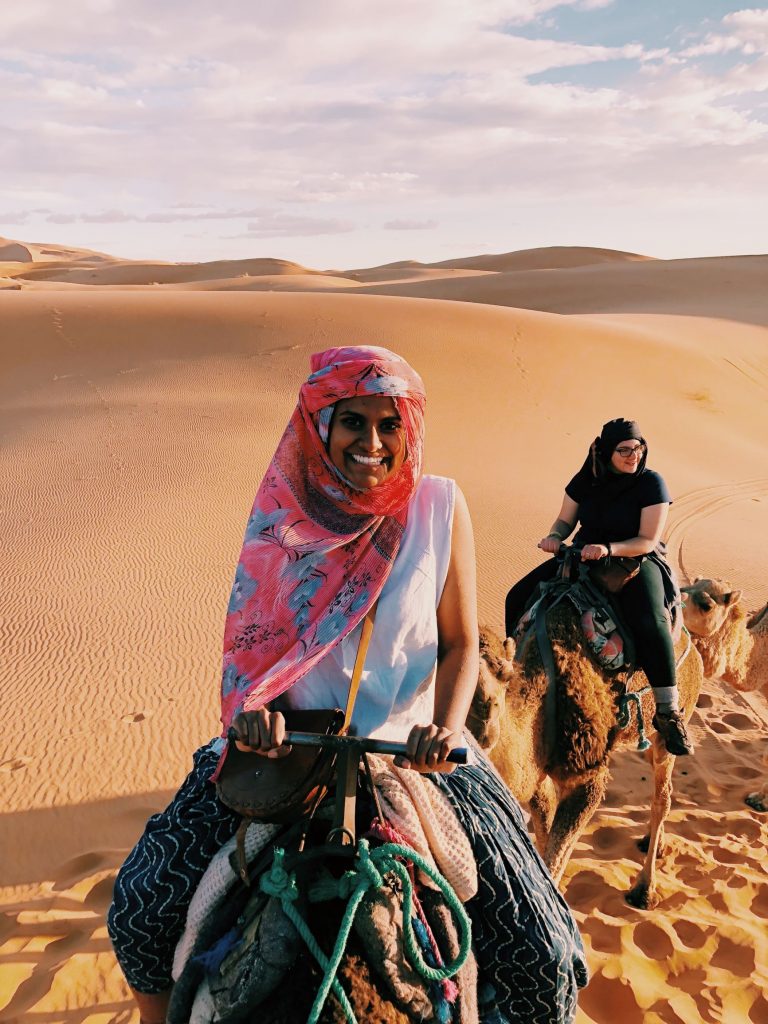
Photo courtesy of Melinda Davis.
Long before she traveled to Morocco, Melinda was already a veteran of international travel. Her parents immigrated to the United States from India and often returned with their daughter to visit relatives. Melinda grew up with a sense that “the world is bigger than my little suburb of New Orleans,” and with that came an awareness of how much inequality, injustice, and conflict exists in the world, too.
That knowledge, in turn, nudged her toward her two majors at the University of Notre Dame: peace studies and psychology. She thought of them as two ways to approach the problem of conflict, one external and the other internal. Conflict, Melinda said, results from severed or disrupted relationships. Peace studies teaches how to repair those ties among people. Psychology shows how to heal them within yourself.
Notre Dame offered no shortage of opportunities to study both conflict and international affairs, but a desire to move beyond the theoretical drew Melinda to SIT Study Abroad’s Migration and Transnational Identity program in Morocco.
“I’ve spent a lot of time in college learning about migrant flows and push and pull factors and the most common routes that [refugees and migrants] take,” she said. “The reason that I wanted to go to Morocco was to just be with them and talk to them and meet them and actually encounter them.”
The country also attracted her because she knew that it would be entirely unlike the United States or western Europe. Still, upon arrival, she was taken with the unfamiliarity of the first “non-western” country other than India that she had seen.
I’ve spent a lot of time in college learning about migrant flows and push and pull factors and the most common routes that [refugees and migrants] take. The reason that I wanted to go to Morocco was to just be with them and talk to them and meet them and actually encounter them.”
She moved in with a host family in Rabat’s old Medina, still partially enclosed by 12th-century walls. Just outside her new home, merchants sold an array of leather goods and carpets in one of the city’s souks, or markets. Stray cats slunk around the street peripheries. With so many students living with families in close proximity, the group fell into the habit of visiting one another for tea, traditionally a combination of “gunpowder” green tea, mint leaves, and large quantities of sugar. This was also a chance to catch up on the Medina gossip.
Above all, Melinda adjusted to Morocco’s more languorous “rhythm of life.” Dinner came at 10 p.m. Communal eating was paramount. Chatting for hours with family and friends took precedence over nervous glances at watches or phones. “Not too many clocks,” Melinda recalled. The pace reminded her of Italy, where she spent two months in 2017.
Her host family helped her acclimate, too. Raised Catholic, and a lifetime student of Catholic schools, Melinda found her Muslim family accommodating of religious difference. She bonded with her host sister when the latter decided to compete in the “Miss Maroc” beauty pageant. Melinda helped by lending jewelry and teaching her sister how to walk in six-inch heels—something ”I’m kind of a pro at,” Melinda said.
Home in Rabat provided a base for learning about migration in Morocco, which includes those leaving for and arriving from other countries—as well as some who emigrated but returned to Morocco after finding life abroad more challenging than expected. Many of this last group find their way to the city of Beni Mellal, where Melinda’s group spoke to Moroccans who had reached Spain and Italy—itself a major feat—but then returned for a variety of reasons.
“They weren’t able to find jobs or they weren’t able to create a life, and so they ended up back in Morocco, which is a big shame—what they would call hshuma,” Melinda said.
It just really opened up a lot of things that I didn’t know that I didn’t know,” she said.
The group also traveled to the Netherlands, which has been an international leader in efforts to settle refugees and migrants. In Amsterdam, Melinda learned about “the other side of emigration,” where even small gestures of warmth and assistance from longtime residents can make a world of difference to new arrivals.
“It just really opened up a lot of things that I didn’t know that I didn’t know,” she said.
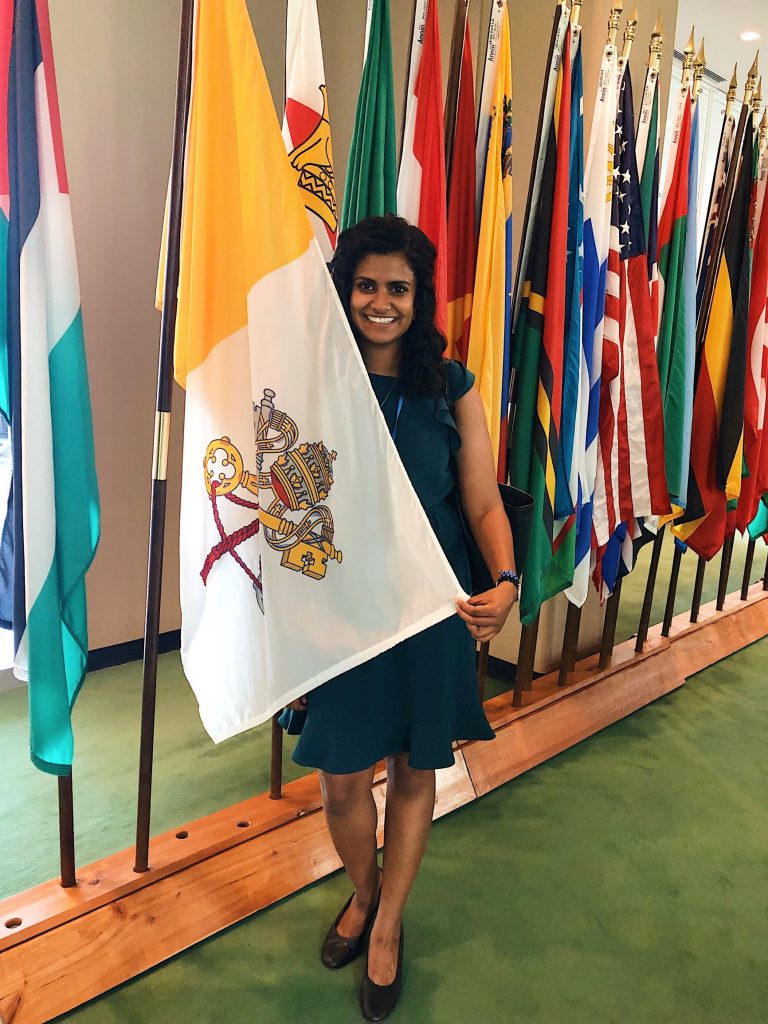
Photo courtesy of Melinda Davis.
Now newly graduated from Notre Dame, Melinda intends to take what she has learned about migration in both theory and practice and apply it to her broader interests in international peace-building. As to how exactly she will do that, she is not yet certain. But for now, she is spending the summer as a fellow with the Permanent Observer Mission of the Holy See to the United Nations. The Vatican’s formal representative at the United Nations does not vote on resolutions, but otherwise plays an active role in UN business. Melinda sees it as an opportunity to figure out what she wants to do next.
“I’ve always wanted to work with the Catholic Church on a global scale, so it’s pretty crazy to me that this is what I get to do right now,” she said. “I think this will be the first step in discerning where my skills are most well deployed.”
Whatever she decides to pursue, Melinda will bring an international perspective—an awareness of both human diversity and our fundamental similarities.
“I think it’s really important to have even just the conception that there are people out there that are not like you,” she said. Yet, at the same time, “we’re closer than we think we are.”
Jawad graduated in 2000 with a degree in civil engineering from the EHTP engineering school in Casablanca. He worked as project manager in several companies including OCP, the Moroccan phosphates state company, and as a temporary professor in Bouchaib Doukali University. He is currently working as consultant in construction management services. Jawad has been working as country coordinator for IHP climate change program since 2013. Jawad is also an activist for social and environmental justice. He took part in world social forum in Belem 2009 and Tunisia 2013 and he is an active member of ATTAC/CADTM Morocco since 2000 and has been member of its secretariat several times.
As a political ecologist, educator and researcher, Nicolas Stahelin has been involved in experiential learning, international and cross-cultural exchange, urban community partnerships, and higher education for 25 years. He has a BA in environmental studies from Oberlin College, an MA in international educational development from Columbia University, and a doctorate in international and comparative education focusing on sustainability policy, also from Columbia. Nicolas is a faculty member of the SIT Graduate Institute MA program in Climate Change and Global Sustainability and a recent research associate at the Sustainability and Education Policy Network of the University of Saskatchewan. He has conducted ethnographic research on urban school-community partnerships for social justice education programs with Latin American immigrant communities in Queens, NY. Nicolas has published in several high-impact peer-reviewed scientific journals. His published doctoral research includes a critical examination of urban environmental governance and the fight for environmental justice in public school communities of Rio de Janeiro, Brazil. In current projects, Nicolas is investigating the ways that urban political ecology in theory, and environmental justice movements in practice, should inform critical urban studies program design in study abroad. Nicolas is an alum (fall 2000) and former program assistant (2001, 2003–2004) of a SIT Study Abroad program in Brazil. Originally Swiss-Brazilian, Nicolas lived for over 20 years in Brazil and Venezuela and is fluent in English, Spanish, Portuguese, and French.
See Dr. Stahalin’s list of publications
Françoise joined the program in 2015. She holds a master’s in community planning and landscape architecture from the University of Rhode Island, a master’s in communication from the Ecole des Hautes Etudes Commerciales, and a bachelor’s in international relations / political science from the University of Sorbonne. She has more than ten years’ experience in change and project management for companies including IBM and Aerospatiale. In the US, she worked for the Department of Environmental Management and the Conservation Law Foundation. Previously, she worked for the French cultural agency in Mexico City. She has been involved in many community projects and is interested in medicinal plants and the ecology of places and landscapes.
Dr. Meur has a PhD in international relations from the University of Namur, where she examined the influence of resentment in the Lebanese-Syrian securitization, and a master’s degree in contemporary Arab and Muslim worlds from the Universities of Lausanne and Geneva. She studied political psychology at the University of Stanford and emotions in international relations at the University of Washington. Her research stands at the crossroads of security studies and political psychology and mainly focuses on the role of social emotions in conflict and post conflict. She is particularly interested in the influence of complex social emotions following traumatic events on security and foreign policy. She has conducted empirical research in Lebanon and Syria since 2006 and has been research project coordinator and lecturer at the Centre for Education and Research in Humanitarian Action. She has taught research methods and research design and has experience in supervising academic dissertations.
Dr. Golaz is a physician and epidemiologist. She holds an MD and a doctorate in medicine (DrMed) from the University of Geneva, Switzerland, and a master of public health from the University of Washington. She completed the Epidemic Intelligence Service program at the Centers for Disease Control and Prevention (CDC) in Atlanta and the CDC Preventive Medicine Residency program at the Indian Health Service in Albuquerque, New Mexico. She was a visiting epidemiologist for the CDC and a regional immunization advisor seconded to the UNICEF Regional Office for South Asia in Kathmandu; the WHO Eastern Mediterranean Regional Office in Cairo; and the WHO South-East Asia Regional Office in New Delhi.
Dr. Golaz teaches public health in humanitarian emergencies at the University of Geneva’s Center for Education and Research in Humanitarian Action and at the Global Studies Institute. Before joining the University in 2012, she was a UNICEF senior health advisor for humanitarian emergencies. She has contributed to many scientific publications.
Alexandre Lambert is Swiss and holds a PhD in international relations from the Graduate Institute of International and Development Studies, Geneva. He has been an academic director and lecturer with SIT in Geneva since 2007. He has been lead researcher for the Organization for Security and Cooperation in Europe at the Graduate Institute, project officer at the Geneva Centre for the Democratic Control of Armed Forces, and a civil servant at the Swiss Federal Department of Defense. He belongs to nonprofit civil society organizations including the Swiss Foreign Policy Association, the European Consortium of Political Research, and European Research Group on Armed Forces and Society. He is a fellow of the Inter-University Seminar on Armed Forces and Society in Chicago and frequently provides policy advice to the OSCE Forum for Security Cooperation, often regarding operations in the Western Balkans, South Caucasus, and Central Asia. Dr. Lambert has published in international politics and history, international security, and security sector governance.
Dr. Lambert is member of the editorial board of Diplomatic Service, a scientific periodical issued by the Diplomatic Academy of the Ministry of Foreign Affairs of the Russian Federation. He has been publishing on various aspects of social science, international affairs, and strategic studies, in German, French, English, and Russian languages. He just published two new books, with Cambridge Scholars on the geo-economics of the Silk Road, and with Routledge on the geopolitics of India.
See Dr. Lambert’s full list of publications
Courses Taught
Graduate Courses
Future of Europe
Undergraduate Courses
Geopolitical Factors of Switzerland
The Silk Health Road
Select Publications
Books
Belt-and-Road Initiative: Geopolitical and Geo-economic Aspects, Co-Author with Faisal Ahmed, Routledge, New York/ London, October 2021
Geopolitics of China’s New Silk Road: Return of Geography and the Reset of the Historical Clock, Rome (Aracne), January 2021.
Democratic Civilian Control of Armed Forces in the Post-Cold War Era, Berlin/London/Wien/Münster/Zürich (LIT: DCAF), 2009.
The OSCE Code of Conduct on Politico-Military Aspects of Security: Anatomy and Implementation (co-author with Victor-Yves Ghebali), Leiden/Boston (Martinus Nijhoff), 2005.
Articles
“Geostrategic Shifts and their Impact on the Indo-Pacific Region”, book chapter, In: Ahmed, Faisal, (ed.), Business Environment in the Indo-Pacific, Routledge, forthcoming (2022).
“Geopolitical Method of Analysis as a Contribution to Foreign Policy Making”, Proceedings of the International Conference: “Expert and Analytical Support of Foreign Policy Making”, Diplomatic Academy, , Institute of International Relations and World History/Lobachevsky State University, in collaboration with the Diplomacy Academy of the Ministry of Foreign Affairs of the Russian Federation, Moscow/Nizhny Novgorod, 17 December 2021, 7-15.
Post-Cold War NATO Enlargement and the Geopolitical Instrumentalization of ‘Liberal Peace’: Lessons from George Kennan, In: David Criekemans (ed.), Geopolitics and International Relations. Grounding World Politics Anew, Chapter 6, forthcoming (Fall 2021).
China’s – not US’s – plan offers big deal for SMEs, Co-author with Faisal Ahmed, The Korea Times, 31 August 2021, https://www.koreatimes.co.kr/www/opinion/2021/08/197_313386.html .
L’OSCE : 30 ans après la fin de la guerre froide, transformation de sa géographie politique et de son espace diplomatique, co-author with Thomas Schmidt, Revue Militaire Suisse, Issue No. 2, 2021, 4-11.
Deployment of Armed Forces During the Coronavirus Crisis: Compliance with the OSCE Code of Conduct?, Co-Author with Filip Edijus and Thomas Schmidt, OSCE Insights, Issue 5, 2020, Institute for Peace Research and Security Policy at the University of Hamburg (IFSH), Centre for OSCE Research (CORE), 1-13, DOI: 10.5771/9783748922339-05.
Geopolitische und Strategische Aspekte Russlands, Unser Mitteleuropa, 13 September 2020, https://unser-mitteleuropa.com/geopolitische-und-strategische-aspekte-russlands.
Amid geopolitical shifts, who will rule the Indian Ocean?, Co-author with Faisal Ahmed, The Hindu Business Line, 15 June 2020, https://www.thehindubusinessline.com/profile/author/Faisal-Ahmed-Alexandre-Lambert-136575 .
Hybrid Military-Police Force, Co-author with Daniil Atroshchenko, CoESPU Magazine, Issue 2 (2019), Italy, Vicenza, 56-58.
From Civil-Military Relations Towards Security Sector Governance, European Political Science, 10/2011: Symposium of the European Consortium of Political Research, pp. 157-166.
Select Presentations
Lambert, A. Geostrategic Shifts Impacting the Indo-Pacific Region [Conference presentation], online (zoom), FORE International Business Conference (FIBC) 2020, “Future of Buisness in the New Global Realities”, FORE School of Management, New Delhi, India Nov. 27-28 2020: Session: Geo-Economic & Geopolitical Architecture.
Lambert, A. “OSCE Code of Conduct: Human Rights and Fundamental Freedoms of Armed Forces Personnel”, OSCE Forum for Security Cooperation (FSC), Security Dialogue; Code of Conduct on Politico-Military Aspects of Security, Vienna, Hofburg, 20 October 2021.
Lambert, A. “Potential to Ease International Tensions in the Black Sea and Mediterranean Region in the Short and Medium Term”, International Conference, Funded by the Gorchakov Fund, The Black Sea Issue in the Focus of the World Politics, Dedication to the 150th Anniversary of the Treaty of London 1871, Sevastopol, 21 May 2021.
Lambert, A. “Geopolitical Method of Analysis as a Contribution to Foreign Policy Making”, “Expert and Analytical Support of Foreign Policy Making”, International Online Conference, Moscow / Niszhny Novgorod, 17 December 2021, Diplomatic Academy of the Ministry of Foreign Affairs of the Russian Federaion, Lobachevsky State University of Niszhny Novgorod.
Lambert, A.; “Revolution in Russland: Die Bewertungen durch Westeuropàische Lànder” Internationales Diplomatisches Seminar: “100 Jahre der Russischen Revolution von 1917: Zeitgenössische Beurteilungen von Historikern, Politiologen und Diplomaten, Schweizerisches Landesmuseum, Zürich, 21 April 2017.
Dr. Brodnicka comes to SIT with experience teaching in large research universities and small liberal arts colleges in the United States, mainly The Ohio State University and Regis University. She received her PhD in philosophy, interpretation, and culture from SUNY Binghamton, with a specialization in African studies and a DEA (postmaster’s degree) in African philosophy and Islam from Université Cheikh Anta Diop in Senegal. She is a founding member of The Dakar Institute of African Studies. She was awarded two Fulbright scholarships to study African spirituality in Serer, Bamana, Fulani, and Dagara traditions and continues to pursue research in those areas. Her monograph on the metaphysical dimension of West African traditional religions entitled, “Living Tradition: Mystical Perception of Identity, Community, and Environment in West African Religions,” addresses the fundamental aspects of this research. Dr. Brodnicka has also published articles, encyclopedia entries, and reviews in journals such as Journal of Religion in Africa, West Africa Review, Journal on African Philosophy, The Encyclopedia of Empire, and Contemporary French Civilization. Her most recent publications address mystical dimensions in African religions in countries such as Senegal, Mali, and Burkina Faso.
Courses Taught
Rethinking Global Security: Religious Pluralism and Politics in Senegal
Senegal: Colonialism, the State and Society
Independent Study Project
Internship and Seminar
Select Publications
Brodnicka, M. (2021). “Creolizing the creolized through Amadou Hampaté Bâ’s living tradition,” Philosophy and Global Affairs, 1(2), 361-369 DOI: 10.5840/pga202192822
Brodnicka, M. (2020). “The Ambiguous Path to Sacred Personhood: revisiting Ambiguous Adventure from the perspective of living tradition,” Journal of World Philosophies, 5(Winter), 13-27.
Brodnicka, M. (2017). “Speech that Takes on Body and Shape: The World as Manifestation of Spirit in West African Religions,” Journal of Religion in Africa, 47(3), 311-345.
Brodnicka, M. (2016). “Iterations of the Divine: The Pursuit of Sacred Personhood in West African Spirituality,” Journal of Academic Perspectives, 4, 1-20.
Select Presentations
“Un dialogue de l’unité à travers la diversité dans la pensée œcuménique d’Amadou Hampaté Bâ,” Gingembre Littéraire 3eme édition, “Dialogue des cultures et des religions,” Mbour, Sénégal 12/2021
“Amadou Hampaté Bâ and the Living Tradition,” Colloque International: Amadou Hampâté Bâ: trente (30) ans déjà, Université Félix Houphouët-Boigny, Abidjan, Côte d’Ivoire 9/2021
“The deliberate power of speech: Amadou Hampaté Ba and the Hands that Have Ears,” Caribbean Philosophical Association (CPA) conference, St. Croix, 4/2020 (cancelled)
“Decolonizing African Religions: The Synergistic Metaphysics of Senghor, Bâ, and Hama,” Caribbean Philosophical Association conference, Providence, Rhode Island 6/2019
“The Living Tradition: A Perspective on African Philosophy,” Caribbean Philosophical Association, Dakar, Senegal 06/2018
“The Ambiguous Path to Sacred Personhood,” Colloque International en Hommage au Professeur Souleymane Bachir Diagne, Société Sénégalaise de Philosophie (SOSEPHI), Dakar, Senegal 12/2017
“Mapping Kaidara’s Mystical Path: The Tale of Initiation as a Mirror of Fulani Metaphysics,” African Studies Association Conference, Chicago, IL 11/2017
“Amadou Hampaté Bâ and the Call to Indigenous Metaphysics,” International Symposium “Presence Africaine: Towards New Political and Cultural Perspectives,” Tokyo, Japan, 8/2017 “Mysticism in African Philosophy,” The Dakar Institute of African Studies Symposium, Dakar, Senegal 7/2017
Research Interests
West African religions, literature, and philosophy
Sufism and indigenous traditions in West Africa
Dr. Belghazi earned his PhD in 1993 from the Centre for Critical and Cultural Theory at Cardiff University, where he was a Chevening scholar. He held a Fulbright postdoctoral scholarship at Duke University and was a member of the UNESCO-sponsored International Panel on Reading for All. He was director of the Centre for Doctoral Studies: The Human and Space in the Mediterranean, and professor of cultural studies and history of the present at the Faculty of Letters in Rabat. He has been visiting professor at universities including Duke; the University of California, Irvine; and the Ferguson Centre for African Studies and Asian Studies at the Open University, England. He has consulted for projects including the Diaspora as a Social and Cultural Practice and the UNESCO project on reconceptualizing Mediterranean dialogues. He is a member of the editorial boards of Time and Society (England), Current Writing (South Africa), and Al Azmina Al Haditha (Morocco), and Middle East Journal of Culture and Communication.
Courses Taught
Social Movements in Morocco
The Politics of Human Rights
Multiculturalism Problematics
Contextualizing Research Methods and Ethics
Select Publications
Belghazi, Taieb & El Maarouf, Moulay Driss. (2021).‘Go! You are Free!’: rentier politics and the gift logic of the royal pardon in Morocco, Cultural Studies, DOI: 10.1080/09502386.2021.1946578
Belghazi, Taieb, El Maarouf, Moulay Driss & El Maarouf, Tarik . (2020). COVID – 19: A Critical Ontology of the Present. Educational Philosophy and Theory, 53 (1), 71-89
Belghazi, Taieb & Moudden, Abdelhay. (2018). Visualizing the Painful Past : Reel Reconciliation Institutions. Middle East Journal of Culture and Communication, 11(3), 229-247
Belghazi, Taieb & El Maarouf, Moulay Driss. (2018). The Urban and Virtual Rhetoric of Tcharmil : Display, Violence, and Rhetoric. The Journal of North African Studies, 23 (1- 2), 292 – 310
Belghazi, Taieb & El Maarouf, Moulay Driss. (2018). The event of death: Reflections on the dynamics of emotions and embodied resistance in the Moroccan Contexts of hirak (movement) and la hirak ((non)movement). Cultural Studies, 33(4):1-25
Belghazi, Taieb & Graiouid, Said. (2016). Political Violence, Narratives of the Nation, and the New Global Arrangement. In Andrew Smith (Ed.). Radical Conflict : Essays on Violence, Intractability and Communication (pp. 159 – 178). London : Lexington
Belghazi, Taieb & Moudden, Abdelhay. (2015). Ihbat : Disillusionment and the Arab Spring in Morocco. Journal of North African Studies, 21 (1), 37 – 49
Belghazi, Taieb & Graiouid, Said (Eds.). ( 2914). Migration, Human Rights, and the Politics of Identiy, Rabat : Faculty of Letters
Belghazi, Taieb & Gaiouid, Said. 2013. Cultural Production and Cultural Patronage in Morocco : The State, the Islamists, and the Field of Culture. Journal of African Cultural Studies, 25, (3), 261- 274
Belghazi, Taieb. (2012).Time and Postmodernism. Rabat : Faculty of Letters
Belghazi, Taieb. (Ed.). (2012) Dialogues Khatibi- Weber. Rabat : Faculty of Letters Publications
Research Interests
Human Rights and ‘democratic iterations’
Populism and fragile democracy
Social and moral values in times of transition
Et-Tibari holds a PhD in sociology from the University of Anglia’s School of Development Studies and a doctorate in anthropology from Paris-Sorbonne University. He has taught sociology and anthropology at University Mohammed V, Rabat, Morocco, and abroad and was a member of the scientific committee of the International Review of Sociology (1991-2004). He has undertaken extensive field research in migration and local development, identity, and integration of Moroccan immigrants in Europe, rural development, and socioeconomic integration of young population. He has worked as an expert on rural exodus and international migration for public institutions. He also served as an evaluator for international institutions.
Courses Taught
Moroccan and Sub-Saharan Migration to the EU
Regional Migration Policies
Research methods
Select Publications
Bouasla, Et-Tibari (1990). The Tunisia Brotherhood in Doukkala Region, Social and Economic History, HespérisTamuda, 28, 107-127
Bouasla, Et-Tibari (1992) Structural Adjustment Policies and Rural Development in Africa. Rabat: l’Institut des Etudes Africaines Publisher
Bouasla Et-Tibari (2002) Youth and Family Enterprise in Morocco, Rabat: Faculty of Human Sciences Publisher
Bouasla Et-Tibari (2012). Generations of Moroccan Migrants in Europe, Social Integration and Cultural Identity, Rabat: Council for Moroccan Community living abroad (CCME)
Et-Tibari Bouasla (2015). Citizenship and Social Groups in Morocco, in Citoyenneté, Corrélation des droits et des devoirs. 109-123. Rabat : Axis Design Publisher
Research Interests
Formal mechanism of migrant integration in Morocco with emphasis on public and civil society programs in favor of sub-Saharan migrants
Migration and local development with a focus on changing patterns of remittance sending in Morocco
Climate change and human mobility
